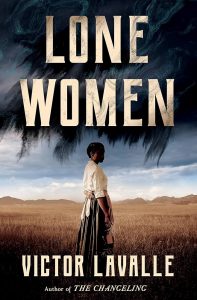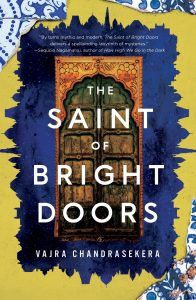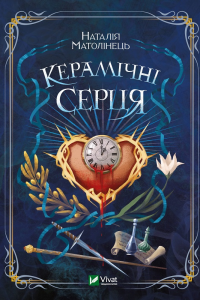The Year in Review 2023 by Jake Casella Brookins

2023 wound up being a strange reading year for me. I started the year with a big move: from Chicago back to beautiful Buffalo, NY. While it’s wonderful to be back east and closer to the mountains, being so far from Chicago’s amazing literary scene has been hard. I’ve particularly missed the wonderful speculative book clubs I was part of there – Think Galactic and the Chicago Nerd Social Club shaped my reading and thinking for many years – and the city’s vibrant network of bookstores, reading series, and general literary community was a constant source of discussion (and reading suggestions) for me. This year saw me reading less than I would have liked, due to a death in the family and related complications, due to the psychic weight of the world this fall, and it brought a shift in who I’m reading and writing with – more and more of my deeper readerly connections are at a distance.
 One positive aspect of that has been the encouragement to read more broadly, and I found myself reading a lot more outside science fiction and fantasy, narrowly defined: more speculative literature from outside of, or at least at the margins of, traditional genre discussions. Many of my favorite reads this year were, quite unexpectedly for me, horror and weird titles. I very much enjoyed the horror-western hybrids of Victor LaValle’s Lone Women and Nathan Ballingrud’s The Strange, the latter with a strong dash of Bradbury weirdness and retro-SF stirred in. I was bowled over by Andrew F. Sullivan’s The Marigold, a smart and unpredictable novel that more genre folks need to be discussing – the weirdness and horror of much more outlandish books, the kind of clear-eyed appraisal and extrapolation of our current situation that more climate fiction could use, but with its foundations anchored (if not, it turns out, quite up to code) very thoroughly in the here and now. And if architectural horror sounds at all up your alley, you must, simply must, read Extended Stay, Juan Martinez’s novel from earlier this year – an epic novel in the vein of King, bursting with several varieties of horror from body to cosmic, all built around the more worldly terrors of political violence and immigration policies. And, finally, another one that I hope genre readers don’t miss – Stephen Kearse’s Liquid Snakes is a hard-to-classify book that’s well worth your time: the horrors of environmental racism, weird and interesting chemical engineering, and deeply smart, angry, and frequently funny narration.
One positive aspect of that has been the encouragement to read more broadly, and I found myself reading a lot more outside science fiction and fantasy, narrowly defined: more speculative literature from outside of, or at least at the margins of, traditional genre discussions. Many of my favorite reads this year were, quite unexpectedly for me, horror and weird titles. I very much enjoyed the horror-western hybrids of Victor LaValle’s Lone Women and Nathan Ballingrud’s The Strange, the latter with a strong dash of Bradbury weirdness and retro-SF stirred in. I was bowled over by Andrew F. Sullivan’s The Marigold, a smart and unpredictable novel that more genre folks need to be discussing – the weirdness and horror of much more outlandish books, the kind of clear-eyed appraisal and extrapolation of our current situation that more climate fiction could use, but with its foundations anchored (if not, it turns out, quite up to code) very thoroughly in the here and now. And if architectural horror sounds at all up your alley, you must, simply must, read Extended Stay, Juan Martinez’s novel from earlier this year – an epic novel in the vein of King, bursting with several varieties of horror from body to cosmic, all built around the more worldly terrors of political violence and immigration policies. And, finally, another one that I hope genre readers don’t miss – Stephen Kearse’s Liquid Snakes is a hard-to-classify book that’s well worth your time: the horrors of environmental racism, weird and interesting chemical engineering, and deeply smart, angry, and frequently funny narration.
 Alongside new books, I’m always engaged in some kind of reread, and filling in gaps in what I’ve read. For the last couple of years, I’ve had Vonnegut more and more on my mind – I feel like I’m seeing his influence (or his absence) a lot, particularly in speculative fiction trying to grapple with deep issues. Interesting takes on time travel and/or memory always catch my eye, and there were a few of those this year – Jinwoo Chong’s Flux unexpectedly so; Jaroslav Kalfař’s A Brief History of Living Forever also, with a simultaneously pointed and curiously light critique of corporate capital. What I’ve particularly come to prize, in Vonnegut-influenced-or-adjacent SF, is two things: a genuine sense of humor, and a vocal opposition to moral atrocities. SFF that can actually pull off humor, especially when it’s not dismissive of real-world stakes, is increasingly something I’ve come to value, and I was very happy to run into a few works this year that made me, as the kids say, laugh out loud. While Nick Harkaway’s comedy is not perhaps his most pronounced virtue, it’s a persistent one, and his ability, in Titanium Noir, to mash together pulp homage, superhero critique, and medical science fiction, all while being quite funny, was remarkable – and also prompted a bit of a reread for me. Titanium Noir is the shortest he’s written to date, so a good entry point – if you enjoy it, you really can’t go wrong with any of his earlier books.
Alongside new books, I’m always engaged in some kind of reread, and filling in gaps in what I’ve read. For the last couple of years, I’ve had Vonnegut more and more on my mind – I feel like I’m seeing his influence (or his absence) a lot, particularly in speculative fiction trying to grapple with deep issues. Interesting takes on time travel and/or memory always catch my eye, and there were a few of those this year – Jinwoo Chong’s Flux unexpectedly so; Jaroslav Kalfař’s A Brief History of Living Forever also, with a simultaneously pointed and curiously light critique of corporate capital. What I’ve particularly come to prize, in Vonnegut-influenced-or-adjacent SF, is two things: a genuine sense of humor, and a vocal opposition to moral atrocities. SFF that can actually pull off humor, especially when it’s not dismissive of real-world stakes, is increasingly something I’ve come to value, and I was very happy to run into a few works this year that made me, as the kids say, laugh out loud. While Nick Harkaway’s comedy is not perhaps his most pronounced virtue, it’s a persistent one, and his ability, in Titanium Noir, to mash together pulp homage, superhero critique, and medical science fiction, all while being quite funny, was remarkable – and also prompted a bit of a reread for me. Titanium Noir is the shortest he’s written to date, so a good entry point – if you enjoy it, you really can’t go wrong with any of his earlier books.
Another writer whose back catalog I’ve been revisiting a bit, whose 2023 offering delighted me, is Lavie Tidhar. The Circumference of the World is a masterful and unsettling little book, an uneasy paean to the power of pulp SF and an inscrutable commentary on Hubbard’s legacy; it was one of my favorite ‘‘regular’’ science fiction reads this year, though perhaps it’s a bit more meta-science-fictional, if that’s a category. Other good traditional SF reads this year for me include Emily Tesh’s Some Desperate Glory, which goes right up to the threshold of my tolerance for both youthful pluckiness and multiverse shenanigans without going over, and Arkady Martine’s lovely and haunting Rose/House, which show her deploying some delightfully Gibson-and-Cherryh-esque themes in a spare and intimate setting – picking the best haunted house story this year is an unusually challenging (and generically diverse) affair. Greg Egan’s Scale, shocking, well, not me, is another astonishing entry from him – someone needs to explain to me why Egan’s not published and discussed to greater fanfare. At any rate, Scale melds incredibly creative and thought-through hard science fiction with the kind of social-political angle Egan’s increasingly been foregrounding in his work, and you’d do well to pick it up. Speaking of the social-political, I also have to give a shout-out to the novellas AK Press has been putting out with their Black Dawn imprint – S.J. Klapecki’s Station Six is a great in-the-trenches (in-the-stars) story of unionizing struggles, and I was quite taken with Aric McBay’s Inversion, a pastoral utopia (with shades of space opera) in the tradition of Le Guin, Piercy, and Byrne.
I generally steer fairly clear of epic fantasy, but I was willing to give Adrian Tchaikovksy’s new books a go – it took me a bit to acquire City of Last Chances, but I’m glad I did, and I highly recommend both it and its standalone sequel, House of Open Wounds. Without wanting to get too deep into subgenre distinctions, I don’t think these are quite New Weird, but there’s lots here to please fans of China Miéville’s work, and I suspect you’d like these if you enjoyed Robert Jackson Bennett’s Founders books – a fairly mechanistic magic system, but with delightfully weird manifestations, and with large casts and social commentary that very much bring Pratchett to mind.
I’m never as good at keeping up with short fiction as I’d like to be – I just do better with a physical book in my hands – and I was pleased to stumble on, or be pointed towards, quite a few excellent collections this year. Theodore McCombs’s Uranians needs to be hammered onto the top of your reading-and-nominating lists, if it isn’t already: excellent and innovative throughout, and the title novella is one of the most finely wrought science fiction stories I’ve read in ages. An absolutely canonical entry for generation ships and queer SFF, in Arnold’s sense – it doesn’t just add to what’s come before, it changes how I read what’s come before. I was absolutely delighted by Timothy Moore’s I Will Teach You Retribution, a collection that’s got enough speculative connections to deserve a spot on your TBR, which leans heavily in the direction of energetic and surreal pomo writers like Donald Barthelme – funny, frantic, and effectively experimental. Bennett Sims’s Other Minds and Other Stories is an absolute knockout of a collection, contemplative and creative, eerie in its perfection – made me sit for a while defining both sides of ‘‘psychological horror,’’ and it’s simultaneously one of the funniest things I read this year.
As I mentioned, I spent a lot of time prowling the margins of science fiction in my reading this year, and finding some real gems there. Partially that’s because, with climate change ever harder to ignore, speculative concerns are just infusing all literature more and more – two of my absolute favorite reads this year were not ‘‘about’’ climate change in any straightforward way, but I felt (or imputed) its influence anyway: Brendan Shay Basham’s Swim Home to the Vanished, an unbelievably lyrical, magical novel of grief and transformation, and, in a very different tenor, Rebekah Bergman’s The Museum of Human History – a thoughtful and elegiac work, the most subdued and interesting fairytale retelling I’ve encountered in ages, and another one that had me thinking of Vonnegut. Not a climate change novel, even metaphorically, but definitely a gem, is Ed Park’s Same Bed Different Dream: an ambitious novel about Korean history, codes and puzzles, science fiction and data-devouring corporations, it’s an immensely fun read, with a kind of athletic grace to how it shifts tone and voice from chapter to chapter, and it rhymes unexpectedly with Tidhar’s Circumference. Finally, in the category of, well, hard-to-categorize, but excellent, is Anya Johanna DeNiro’s OKPsyche, a painfully brilliant novel. There’s certainly science fiction here, climate concerns and drones, as well as absurdism and magic, but DeNiro’s voice is what carries it – by turns wise, brutal, vulnerable, and with a gift for compelling passages that basically annihilates the need for traditional story structure. It’s a bittersweet read, now, with news of Small Beer closing up shop.
 Every year ends with me looking back over what I’ve read and, while there are always plenty of good books to reflect on and recommend, there’s not always one that’s clearly out ahead, clearly the book of the year. That’s not the case for 2023, which, amid all its horrors and atrocities, brought me The Saint of Bright Doors. Vajra Chandrasekera’s debut, like all the absolutely top-tier books, defies easy description. Normally, when talking about a book, I reach for synopsis, which does little here, or I go long on comparison, which is handy to get you thinking in the ballpark, but does little to convey what the novel is actually like. The Saint of Bright Doors is actually like – itself. Actually like a place, actually like a person – you get to know them more, the more time you spend with them, and, also, they get stranger as you do so. This is a novel that had me writing ‘‘sickos.jpg’’ in the margin; it’s a novel that knows when to be quick and when to be slow; when to be obvious, and when to let things, slowly, develop. The way that The Saint of Bright Doors is so committed to its world, to the pain and the importance and the complexity, the way we’re irrevocably rooted in history and society and yet, always, at risk of flying off, is something I’m going to be pondering for years to come. Fetter, the main character, doesn’t have easy answers for revolutions, for personal quandaries or crushing political problems, but I can’t tell you how much it meant to have this book this year.
Every year ends with me looking back over what I’ve read and, while there are always plenty of good books to reflect on and recommend, there’s not always one that’s clearly out ahead, clearly the book of the year. That’s not the case for 2023, which, amid all its horrors and atrocities, brought me The Saint of Bright Doors. Vajra Chandrasekera’s debut, like all the absolutely top-tier books, defies easy description. Normally, when talking about a book, I reach for synopsis, which does little here, or I go long on comparison, which is handy to get you thinking in the ballpark, but does little to convey what the novel is actually like. The Saint of Bright Doors is actually like – itself. Actually like a place, actually like a person – you get to know them more, the more time you spend with them, and, also, they get stranger as you do so. This is a novel that had me writing ‘‘sickos.jpg’’ in the margin; it’s a novel that knows when to be quick and when to be slow; when to be obvious, and when to let things, slowly, develop. The way that The Saint of Bright Doors is so committed to its world, to the pain and the importance and the complexity, the way we’re irrevocably rooted in history and society and yet, always, at risk of flying off, is something I’m going to be pondering for years to come. Fetter, the main character, doesn’t have easy answers for revolutions, for personal quandaries or crushing political problems, but I can’t tell you how much it meant to have this book this year.
Jake Casella Brookins is a critic, independent scholar, and avid book-clubber. He’s presented his academic work on science fiction with the SFRA, ACLA, ICFA, and many more, publishes regular reviews with the Chicago Review of Books, and is the publishing editor for the Ancillary Review of Books. Originally from the Pennsylvania Appalachians, he now lives in beautiful Buffalo, New York, with his wife, the playwright Alison Casella Brookins.
This review and more like it in the February 2024 issue of Locus.
 While you are here, please take a moment to support Locus with a one-time or recurring donation. We rely on reader donations to keep the magazine and site going, and would like to keep the site paywall free, but WE NEED YOUR FINANCIAL SUPPORT to continue quality coverage of the science fiction and fantasy field.
While you are here, please take a moment to support Locus with a one-time or recurring donation. We rely on reader donations to keep the magazine and site going, and would like to keep the site paywall free, but WE NEED YOUR FINANCIAL SUPPORT to continue quality coverage of the science fiction and fantasy field.
©Locus Magazine. Copyrighted material may not be republished without permission of LSFF.







